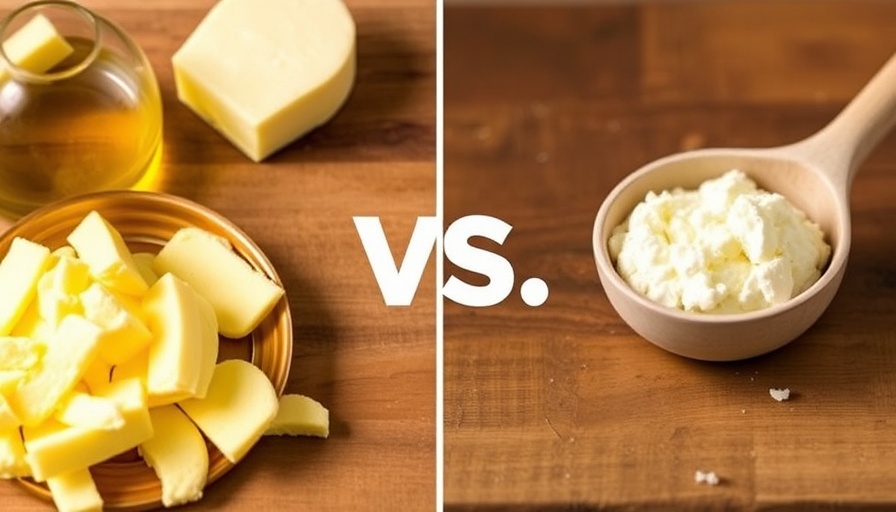
Understanding the Butter vs Oils Debate
In 2014, TIME magazine sparked widespread public interest with its provocative cover story proclaiming, "Eat Butter." This revival of butter’s status led many to reconsider the role of saturated fats in their diets. However, as we navigate this complex landscape of nutrition, it's crucial to ask: was butter ever the health hero we thought it was?
The Rise of Butter: A Media Sensation
The narrative that butter was making a comeback downplayed the health risks associated with high saturated fat consumption. Nutritionists and health authorities have long warned that replacing healthier fats with saturated ones could lead to increased cardiovascular disease (CVD) and other health issues. The 2016 research study titled, "Is Butter Back?" revealed a nuanced picture.
2016 Study: Butter's Neutral Impact
This meta-analysis, published in PLOS ONE, tracked data from over half a million participants and found that butter consumption presented a weak correlation with all-cause mortality. With only a 1% increased risk per 14g per day, the study allowed for a cautious interpretation of butter's role. Dr. Dariush Mozaffarian was assertive in clarifying that while butter isn’t healthy per se, it is better than highly processed foods like sugary cereals and sodas.
2025 Study: The Case for Plant-Based Oils
Fast forward to 2025, where a new study emerged advocating for the benefits of substituting butter with plant-based oils. This research concluded that such a switch could decrease mortality rates by 17%. Various oils are rich in heart-healthy mono- and polyunsaturated fats, offering greater health benefits over butter. This shift in research emphasis highlights the importance of oils that can improve heart health and reduce triglycerides, making them a superior choice in our diets.
Understanding the Current Landscape: Nutrition Experts Weigh In
Experts like Dr. Walter Willett, a prominent nutritionist, advise moderation when it comes to butter. While butter can fit into a balanced diet, replacing it with healthier oil options can be more beneficial. The consensus amongst nutritionists suggests that integrating oils like olive oil or avocado oil into meals can lead to better overall health, driving home the point that not all fats are alike.
The Bigger Picture: Dietary Choices Matter
It’s not solely about whether butter or oil is better; it’s about what these fats replace in your diet. For instance, replacing butter with plant oils not only enhances nutrient intake but may also contribute to a more balanced eating pattern. With this in mind, it’s essential to understand how dietary fats interact. Incorporating whole grains, fruits, and vegetables alongside healthy fats can provide a comprehensive approach to nutrition.
Reassessing Fats in Our Diets: Emotional Perspectives
As women navigating health choices and dietary landscapes, this conversation becomes personal. The emotional ties to food often complicate decisions, especially with pervasive media narratives. Acknowledging trends while basing choices on sound nutritional science can empower women to make informed decisions that lead to healthier lifestyles.
A Call for Balanced Perspectives: Final Thoughts
Being aware of how information on nutrition can sometimes mislead is crucial in maintaining health. The debate over butter versus oils reflects a larger struggle in understanding dietary science. The journey toward nutritious eating should prioritize healthcare insights over sensational headlines.
In conclusion, while butter may not be the villain it was once considered, choosing plant-based oils can lead to better health outcomes. If you're looking to boost your health, consider adding more heart-healthy oils to your diet today!
 Add Row
Add Row  Add
Add 




 Add Row
Add Row  Add
Add 


Write A Comment